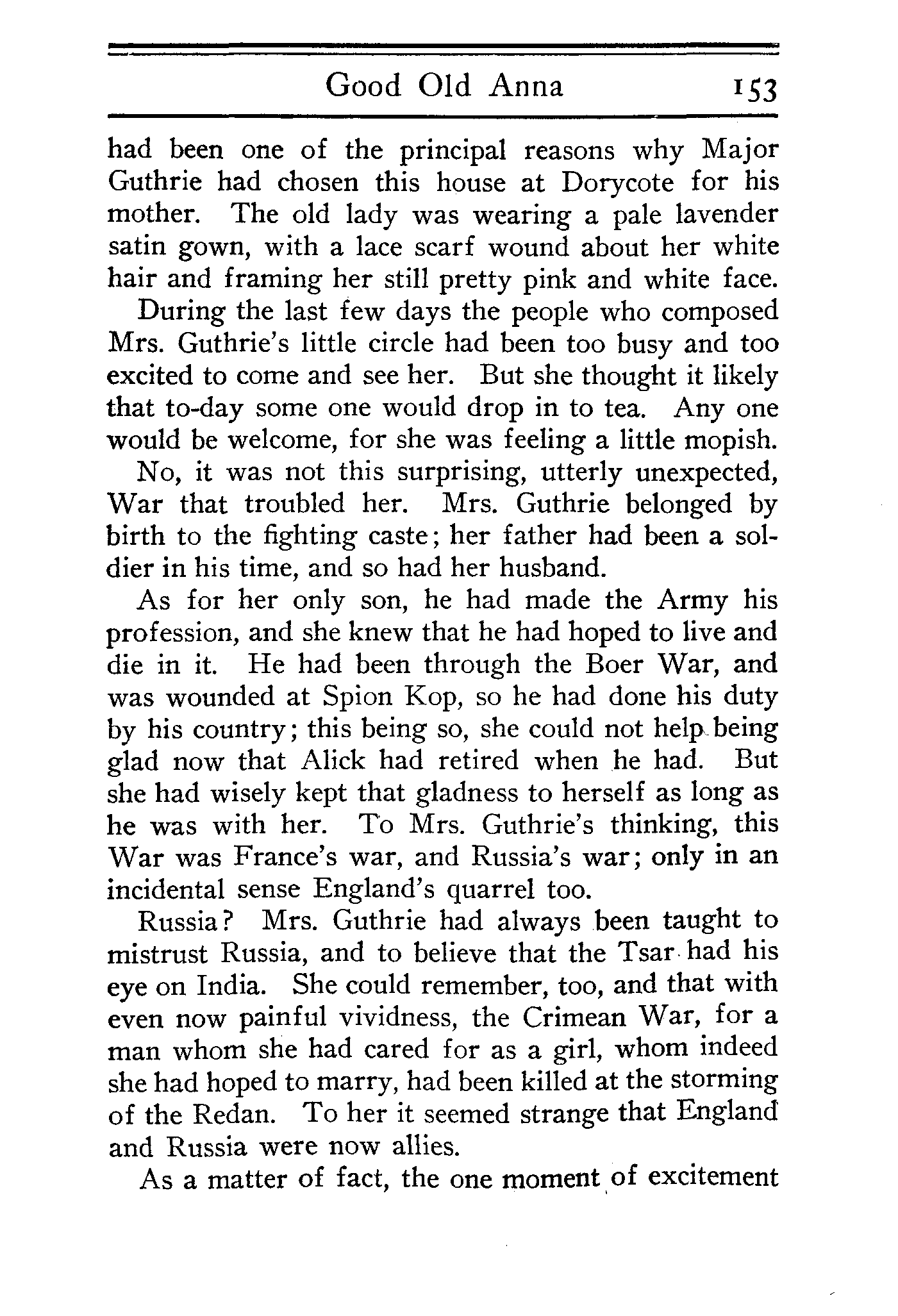 p152 _
-chap- _
toc-1 _
p153w _
toc-2 _
+chap+ _
p154
p152 _
-chap- _
toc-1 _
p153w _
toc-2 _
+chap+ _
p154
had been one of the principal reasons why Major
Guthrie had chosen this house at Dorycote for his
mother. The old lady was wearing a pale lavender
satin gown, with a lace scarf wound about her white
hair and framing her still pretty pink and white face.
During the last few days the people who composed
Mrs. Guthrie's little circle had been too busy and too
excited to come and see her. But she thought it likely
that today some one would drop in to tea. Any one
would be welcome, for she was feeling a little mopish.
No, it was not this surprising, utterly unexpected,
War that troubled her. Mrs. Guthrie belonged by
birth to the fighting caste; her father had been a soldier
in his time, and so had her husband.
As for her only son, he had made the Army his
profession, and she knew that he had hoped to live and
die in it. He had been through the Boer War, and
was wounded at Spion Kop, so he had done his duty
by his country; this being so, she could not help being
glad now that Alick had retired when he had. But
she had wisely kept that gladness to herself as long as
he was with her. To Mrs. Guthrie's thinking, this
War was France's war, and Russia's war; only in an
incidental sense England's quarrel too.
Russia? Mrs. Guthrie had always been taught to
mistrust Russia, and to believe that the Tsar had his
eye on India. She could remember, too, and that with
even now painful vividness, the Crimean War, for a
man whom she had cared for as a girl, whom indeed
she had hoped to marry, had been killed at the storming
of the Redan. To her it seemed strange that England
and Russia were now allies.
As a matter of fact, the one moment of excitement
[[153]]
p152 _
-chap- _
toc-1 _
p153w _
toc-2 _
+chap+ _
p154